Ultimate 7-Day Meal Plan for Muscle Gain: Maximize Your Results

Introduction
Building muscle requires more than just intense workouts; it demands a strategic approach to nutrition. A well-structured meal plan ensures you get the right balance of protein, carbohydrates, and fats, providing the fuel and recovery necessary for muscle growth. This comprehensive guide outlines a 7-day meal plan tailored for muscle gain, complete with delicious recipes and expert tips to maximize your results.
Table of Contents
| Heading | Sub-Topics |
|---|---|
| Understanding Muscle Gain Nutrition | Importance of Protein, Carbs, and Fats; Role of Micronutrients |
| Setting Your Goals | Calculating Caloric Needs, Determining Macros |
| Meal Timing and Frequency | Importance of Meal Timing, How Often to Eat |
| Day 1: High-Protein Breakfasts | Recipe: Protein Pancakes, Nutritional Breakdown |
| Day 1: Balanced Lunches | Recipe: Chicken and Quinoa Salad, Nutritional Breakdown |
| Day 1: Energizing Dinners | Recipe: Baked Salmon with Veggies, Nutritional Breakdown |
| Day 2: Breakfasts for Muscle Growth | Recipe: Greek Yogurt Parfait, Nutritional Breakdown |
| Day 2: Power-Packed Lunches | Recipe: Turkey and Avocado Wrap, Nutritional Breakdown |
| Day 2: Protein-Rich Dinners | Recipe: Beef Stir-Fry, Nutritional Breakdown |
| Day 3: Nutrient-Dense Breakfasts | Recipe: Smoothie Bowl, Nutritional Breakdown |
| Day 3: Filling Lunches | Recipe: Lentil Soup, Nutritional Breakdown |
| Day 3: Muscle-Building Dinners | Recipe: Chicken Alfredo, Nutritional Breakdown |
| Day 4-7: Continuing the Plan | Sample Meals and Recipes, Nutritional Breakdown |
| Snacks and Supplements | Best Snacks for Muscle Gain, Recommended Supplements |
| Hydration and Muscle Gain | Importance of Water, Hydration Tips |
| Adjusting Your Plan | Customizing for Dietary Restrictions, Adjusting Portions |
| Common Mistakes to Avoid | Overeating, Undereating, Skipping Meals |
| Tracking Your Progress | Measuring Gains, Adjusting as Needed |
| FAQs | Addressing Common Questions |
Understanding Muscle Gain Nutrition
Importance of Protein, Carbs, and Fats
To build muscle, your body needs a balanced intake of macronutrients:
- Protein: Essential for muscle repair and growth. Aim for 1.2-2.0 grams per kilogram of body weight daily.
- Carbohydrates: Provide energy for workouts and recovery. Complex carbs like whole grains and vegetables are ideal.
- Fats: Support hormone production and overall health. Focus on healthy fats from sources like avocados, nuts, and olive oil.
Role of Micronutrients
Vitamins and minerals play a crucial role in muscle function and recovery. Ensure your diet includes a variety of fruits and vegetables to meet these needs.
Setting Your Goals
Calculating Caloric Needs
To gain muscle, you need to consume more calories than you burn. Use an online calculator to determine your Total Daily Energy Expenditure (TDEE) and add a surplus of 250-500 calories per day.
Determining Macros
Based on your caloric needs, divide your intake into the appropriate macronutrient ratios. A common ratio for muscle gain is 40% carbs, 30% protein, and 30% fats.
Meal Timing and Frequency
Importance of Meal Timing
Eating at regular intervals helps maintain energy levels and supports muscle recovery. Aim for 5-6 meals per day, including snacks.
How Often to Eat
Space your meals every 2-3 hours to keep your metabolism active and provide a steady supply of nutrients to your muscles.
Day 1: High-Protein Breakfasts
Recipe: Protein Pancakes
- Ingredients:
- 1 cup oats
- 1 scoop protein powder
- 1 banana
- 1 cup almond milk
- 2 eggs
- 1 tsp baking powder
- Instructions:
- Blend all ingredients until smooth.
- Cook on a non-stick pan over medium heat until bubbles form on the surface. Flip and cook until golden brown.
- Nutritional Breakdown:
- Calories: 450
- Protein: 30g
- Carbs: 50g
- Fats: 15g
Day 1: Balanced Lunches
Recipe: Chicken and Quinoa Salad
- Ingredients:
- 1 cup cooked quinoa
- 1 grilled chicken breast, sliced
- 1 cup mixed greens
- 1/2 avocado, diced
- 1/4 cup cherry tomatoes, halved
- 2 tbsp olive oil
- 1 tbsp lemon juice
- Instructions:
- Combine quinoa, chicken, greens, avocado, and tomatoes in a bowl.
- Drizzle with olive oil and lemon juice, toss to coat.
- Nutritional Breakdown:
- Calories: 600
- Protein: 35g
- Carbs: 45g
- Fats: 25g
Day 1: Energizing Dinners
Recipe: Baked Salmon with Veggies
- Ingredients:
- 1 salmon fillet
- 1 cup broccoli florets
- 1 cup bell peppers, sliced
- 1 tbsp olive oil
- Salt and pepper to taste
- Lemon wedges
- Instructions:
- Preheat the oven to 400°F (200°C).
- Place salmon on a baking sheet, season with salt and pepper.
- Toss veggies with olive oil, salt, and pepper, and arrange around the salmon.
- Bake for 15-20 minutes until salmon is cooked through and veggies are tender. Serve with lemon wedges.
- Nutritional Breakdown:
- Calories: 550
- Protein: 40g
- Carbs: 20g
- Fats: 30g
Day 2: Breakfasts for Muscle Growth
Recipe: Greek Yogurt Parfait
- Ingredients:
- 1 cup Greek yogurt
- 1/2 cup granola
- 1/2 cup mixed berries
- 1 tbsp honey
- Instructions:
- Layer yogurt, granola, and berries in a glass or bowl.
- Drizzle with honey and serve.
- Nutritional Breakdown:
- Calories: 350
- Protein: 20g
- Carbs: 45g
- Fats: 10g
Day 2: Power-Packed Lunches
Recipe: Turkey and Avocado Wrap
- Ingredients:
- 1 whole wheat wrap
- 4 slices turkey breast
- 1/2 avocado, sliced
- 1/4 cup spinach
- 1 tbsp hummus
- Instructions:
- Spread hummus on the wrap.
- Layer turkey, avocado, and spinach on top.
- Roll up tightly and slice in half.
- Nutritional Breakdown:
- Calories: 400
- Protein: 25g
- Carbs: 35g
- Fats: 18g
Day 2: Protein-Rich Dinners
Recipe: Beef Stir-Fry
- Ingredients:
- 1 cup brown rice, cooked
- 8 oz beef sirloin, sliced thin
- 1 cup mixed veggies (carrots, bell peppers, snap peas)
- 2 tbsp soy sauce
- 1 tbsp sesame oil
- 1 tsp garlic, minced
- Instructions:
- Heat sesame oil in a pan over medium-high heat.
- Add garlic and beef, stir-fry until beef is browned.
- Add veggies and soy sauce, cook until veggies are tender.
- Serve over cooked brown rice.
- Nutritional Breakdown:
- Calories: 600
- Protein: 45g
- Carbs: 50g
- Fats: 20g
Day 3: Nutrient-Dense Breakfasts
Recipe: Smoothie Bowl
- Ingredients:
- 1 banana
- 1/2 cup frozen berries
- 1/2 cup spinach
- 1 scoop protein powder
- 1/2 cup almond milk
- 1 tbsp chia seeds
- Instructions:
- Blend banana, berries, spinach, protein powder, and almond milk until smooth.
- Pour into a bowl and top with chia seeds.
- Nutritional Breakdown:
- Calories: 350
- Protein: 25g
- Carbs: 50g
- Fats: 8g
Day 3: Filling Lunches
**Recipe:
Lentil Soup**
- Ingredients:
- 1 cup lentils
- 4 cups vegetable broth
- 1 cup diced tomatoes
- 1 carrot, diced
- 1 celery stalk, diced
- 1 onion, diced
- 2 cloves garlic, minced
- 1 tbsp olive oil
- Instructions:
- Heat olive oil in a pot over medium heat.
- Add onion, carrot, celery, and garlic, cook until softened.
- Add lentils, tomatoes, and broth. Simmer for 30 minutes until lentils are tender.
- Nutritional Breakdown:
- Calories: 400
- Protein: 25g
- Carbs: 60g
- Fats: 10g
Day 3: Muscle-Building Dinners
Recipe: Chicken Alfredo
- Ingredients:
- 1 cup whole wheat pasta, cooked
- 1 chicken breast, cooked and sliced
- 1/2 cup Alfredo sauce
- 1 cup broccoli, steamed
- 1 tbsp Parmesan cheese
- Instructions:
- Toss cooked pasta with Alfredo sauce and steamed broccoli.
- Top with sliced chicken and Parmesan cheese.
- Nutritional Breakdown:
- Calories: 600
- Protein: 40g
- Carbs: 55g
- Fats: 20g
Day 4-7: Continuing the Plan
For the remaining days, mix and match meals from the previous days or try the following:
- Breakfasts: Omelette with spinach and mushrooms, Overnight oats with protein powder, Cottage cheese with pineapple.
- Lunches: Grilled chicken Caesar salad, Tuna salad sandwich, Quinoa and black bean bowl.
- Dinners: Shrimp and vegetable stir-fry, Pork tenderloin with sweet potatoes, Turkey chili.
Snacks and Supplements
Best Snacks for Muscle Gain
- Greek yogurt with honey
- Protein bars
- Hard-boiled eggs
- Apple slices with almond butter
- Cottage cheese with berries
Recommended Supplements
- Whey protein powder
- Creatine monohydrate
- BCAAs (Branched-Chain Amino Acids)
- Multivitamins
Hydration and Muscle Gain
Importance of Water
Staying hydrated is crucial for muscle function and recovery. Aim to drink at least 3 liters of water daily.
Hydration Tips
- Carry a water bottle with you.
- Drink water before, during, and after workouts.
- Include water-rich foods like fruits and vegetables in your diet.
Adjusting Your Plan
Customizing for Dietary Restrictions
Modify recipes to suit your dietary needs, such as using plant-based protein sources for vegetarians or gluten-free grains for those with gluten intolerance.
Adjusting Portions
Listen to your body and adjust portion sizes based on your hunger levels and progress. Ensure you’re meeting your caloric and macro goals.
Common Mistakes to Avoid
- Overeating: While a caloric surplus is necessary, avoid excessive eating that can lead to fat gain.
- Undereating: Not consuming enough calories can hinder muscle growth.
- Skipping Meals: Consistency is key. Ensure you eat regularly to support muscle recovery.
Tracking Your Progress
Measuring Gains
Track your muscle gain progress by measuring body composition changes, strength improvements, and physical measurements.
Adjusting as Needed
Based on your progress, adjust your meal plan and caloric intake to continue seeing results.
FAQs
What are the best protein sources for muscle gain?
Lean meats, fish, eggs, dairy products, legumes, and plant-based protein powders are excellent sources.
How important are carbs for muscle gain?
Carbohydrates provide the energy needed for workouts and recovery, making them essential for muscle growth.
Can I gain muscle without supplements?
Yes, while supplements can aid muscle gain, a balanced diet with sufficient protein and nutrients is key.
How much water should I drink daily for muscle gain?
Aim for at least 3 liters of water daily, adjusting based on your activity level and individual needs.
Is it necessary to eat before and after workouts?
Yes, consuming a meal or snack before and after workouts can enhance performance and recovery.
What should I do if I’m not seeing muscle gain results?
Evaluate your diet and training plan, ensure you’re in a caloric surplus, and consider consulting a nutritionist or trainer.
Conclusion
A well-planned meal strategy is essential for effective muscle gain. By focusing on nutrient-dense foods, balancing macros, and maintaining proper hydration, you can achieve your muscle-building goals. Stick to this 7-day meal plan, make necessary adjustments, and watch your progress soar.
